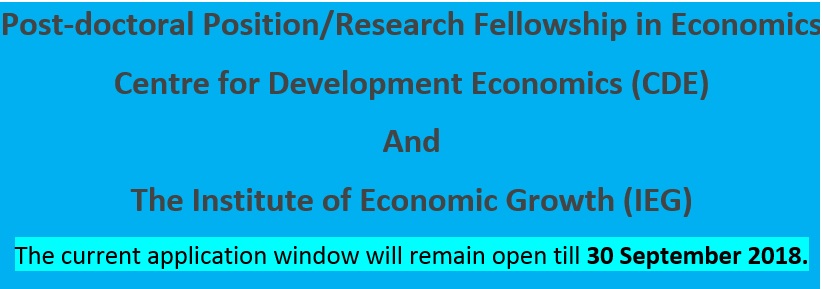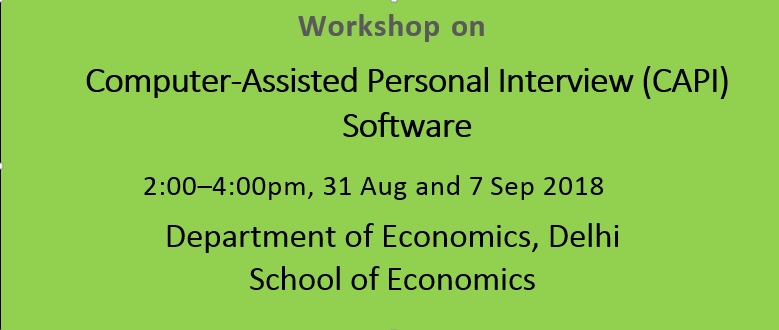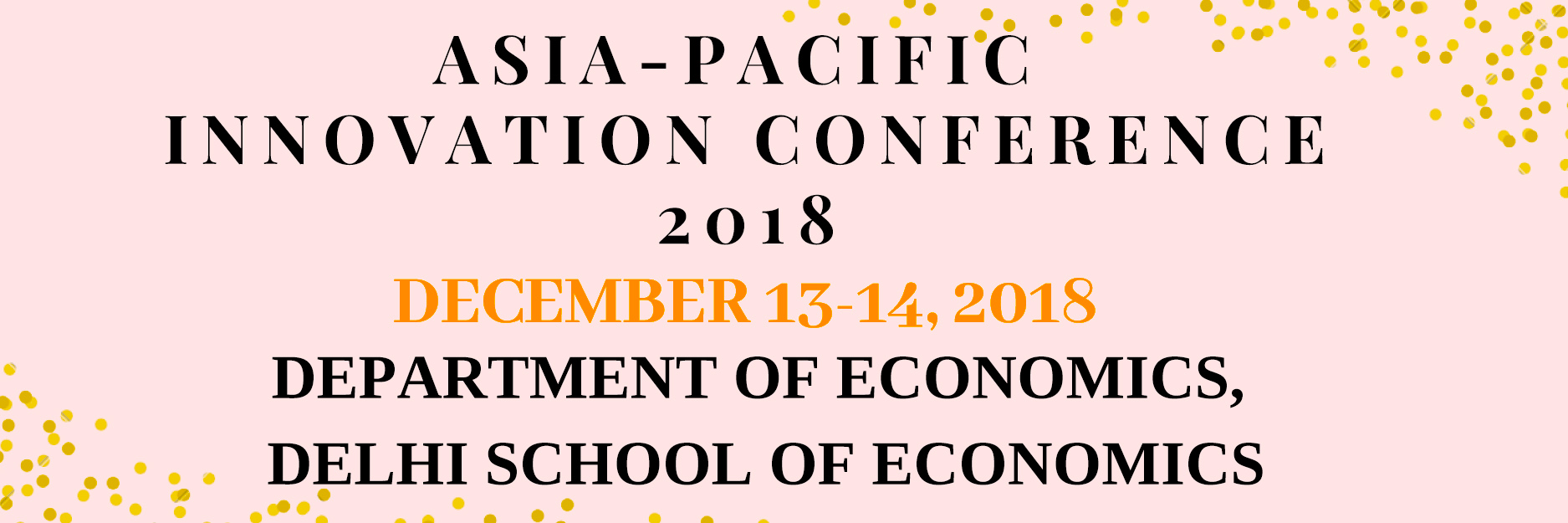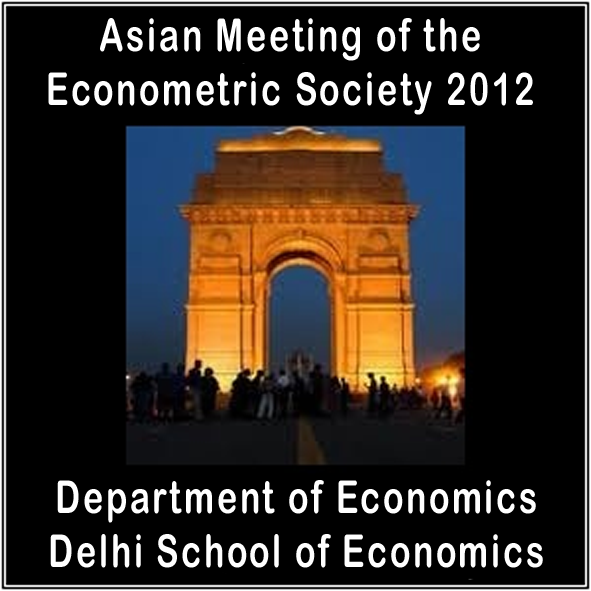THE M.A. PROGRAMME
The Department offers a Master of Arts (M.A.) programme in Economics, which reflects new developments in the discipline. The curriculum has a strong theoretical and quantitative focus with all students being trained in the use of computers and statistical software that they find useful in their professional careers in academia, research institutions, government, and industry. The M.A. Programme is semester-based and includes a large number of elective courses which allows students to pursue their varied interests and diverse fields of specialization. Course Structure The M.A. in Economics is a two-year full-time programme, with each year comprising the summer and winter semesters. The academic calendar for the M.A. Economics programme for 2011-2012 is as follows:
Summer Semester
Summer Semester Teaching : 18th July – 28th October
Preparatory Break : 29th October – 6th November
Semester Examination : 7th November – 26th November
Semester Recess 27th November – 30th November
Winter Semester
Winter Semester Teaching 1st December – 29th March
Winter Break 24th December, 2011 – 6th January, 2012
Preparatory Break 30th March – 6th April
Semester Examination 7th April – 27th April
Summer Vacation 1st May – 15th July
The programme of study consists of fifteen courses, of which six are compulsory core courses and nine are elective/optional courses. Every student is required to complete the programme within a span period of four years of their initial admission.
Courses are taken in the following sequence:
Semester I:
Microeconomic Theory (001)
Introductory Mathematical Economics (002)
Macroeconomic Theory (004)
Semester II:
Introductory Econometrics (003)
Markets, Institutions and Economic Growth (005)
Economic Development & Policy in India (006)
One optional paper
Semester III:
Four optional papers
Semester IV:
Four optional papers
Each student is required to finalize his/her choice of the elective courses within two weeks of the start of each semester. From the list given below, the Department will announce the elective courses on offer at the beginning of each semester. The choice of elective courses in the semester will be limited to those announced by the department. Because of infrastructural requirements, the department may put a cap on the number of students in an elective course. A list of elective courses is given below with those which were offered during 2010–2011 marked in bold.
Elective courses are grouped into nine categories, including a “General” category. 1.
1. Microeconomics:
101 Mathematical Economics
102 General Equilibrium Theory
103 Game Theory I
104 Game Theory II
105 Economics of Uncertainty
106 Topics in Economic Theory
107 Choice Theory
108 Social Choice Theory
109 International Trade
2. Macroeconomics :
201 Income, Employment and Fluctuations
202 Dynamic Macroeconomics
203 Open Economy Macroeconomics
204 Monetary Theory and Policy
205 Topics in Macroeconomic Theory
206 Empirical Macroeconomics
3. Economic History :
301 India and the Early Modern International Economy
302 Labour Markets in Historical Perspective
303 International Financial System, 1850-1975
304 Indian Business and Entrepreneurial History
305 Industrial Organisation in Historical Perspective
306 Contemporary Issues in Historical Perspective
307 Topics in Economic and Social History, 1700-1975
4. Econometric Methods and Applications :
401 Econometric Methods
402 Applied Multivariate Statistics
403 Time Series Analysis
404 Forecasting Methods and Applications
405 Applied Production Analysis
406 Applied Consumption Analysis
407 Structural Modelling for Policy Analysis
408 Topics in Econometrics
5. Finance: Theory, Institutions and Modelling :
501 Corporate Finance
502 Financial Theory
503 Financial Markets
504 Econometrics of Financial Markets
6. Public Policy: Theory and Institutions
601 Public Economics I
602 Public Economics II
603 Environmental Economics
604 Law and Economics 605 Resource Economics
606 Energy Economics
607 Applied Welfare Economics
608 Economics of Regulation
7. Development Economics :
701 Population and Development
702 Economics of Education and Health
703 Labour Economics
704 Trade and Development
705 Environment and Development
706 Macroeconomic Management in Developing Countries
707 Topics in Development Economics
708 India in the World Economy
709 Transport, Location and Infrastructure
710 Comparative Development
8. Industrial and Agricultural Economics
801 Industrial Organization
802 Industrial Economy of India
803 Economic Theory of the Firm
804 Indian Agriculture: Incentives and Decision-making
805 Indian Agriculture: Markets, Institutions and Technology
806 Topics in Agricultural Economics





